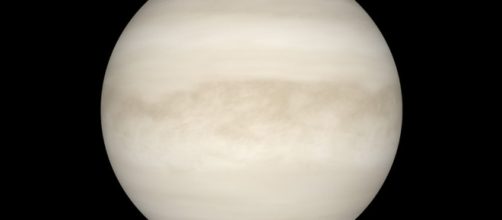Unlike Mars, Venus has always been the ugly stepchild of planetary exploration. The cloud-shrouded world is a hell of blistering temperatures and crushing pressure on its surface. Various Soviet landings on the second planet from the sun have either failed or lasted only a brief time. The United States has studied Venus safe from afar, starting with Mariner 2 in the early 1960s and ending with Magellan in the 1990s. Now Russia would like to revisit Venus and NASA is interested in joining in, according to Space.com.
Venera-D is a planned Russian mission to Venus that would involve not only a lander and an orbiter, but an airship that would ply the skies of the planet where both the temperature and atmospheric pressure is relatively benign compared to what adheres on the surface.
The mission represents an opportunity for cooperative exploration for the two space powers and former superpower rivals.
Venus is about the same size as Earth. However, a runaway greenhouse effect sometime in the distant past has created a world that more resembles Hell than any place on our home planet. Its atmosphere is 93 percent carbon dioxide with a pressure 92 times that of Earth on the surface. The temperature on the surface is 865 degrees F on the average. In many ways, Venus is one of the most inhospitable in the solar system.
About 50 kilometers above Venus’ surface both the pressure and temperature are relatively benign, hence the proposal to insert an airship, run by solar energy, to explore that region.
One of the engineering challenges is that sulfuric acid also exists at that part of the Venusian atmosphere. Temperatures, while nowhere near what adheres on the surface, are still much higher than on Earth.
Even so, some futurists suggest that floating cities could be used to colonized the Upper Atmosphere of Venus, with scientists living there long term, studying the planet with remote controlled drones and rovers specially built to withstand the harsh conditions on the surface.
In the meantime, Venera-D is planned to take place sometime in the 2020s and has not yet received significant funding.

